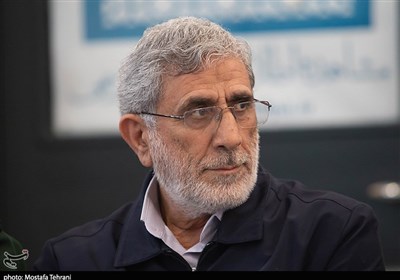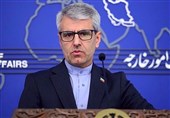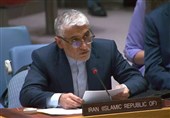Qatar-Saudi Rift Enters New Phase
TEHRAN (Tasnim) – Failed in its efforts to change Doha policy, Riyadh has reportedly made new efforts to change the regime in the neighboring Arab country.
Ten-week after the rift between Qatar and Saudi Arabia and its allies in the Persian Gulf, Sheikh Abdullah Bin Ali Al-Thani, a descendant of Qatar’s founder who is a little-known businessman in London was embraced by the Saudi officials.
The sheikh is a scion of a ruling family branch that was in power for decades until 1972. His brother, Ahmad, was deposed in 1972 by Sheikh Tamim’s grandfather. The sheikh is married to a Saudi and spends time in the kingdom.
He was welcomed warmly in Saudi Arabia by Crown Prince Mohammed bin Salman, then jetted off to Morocco, where Saudi King Salman hosted him at his vacation spot in Tangier. And while the Qatari government said the sheikh was on a personal visit, some media outlets close to the Saudi alliance portrayed his meetings as a triumphant diplomatic effort.
Promoting Sheikh Abdullah is probably part of a plan to add pressure on Qatari ruler Sheikh Tamim Bin Hamad Al Thani, who has refused to capitulate to the bloc’s 13 conditions for ending the feud.
Saudi Arabia, the United Arab Emirates, Bahrain and Egypt accuse Qatar of destabilizing the Middle East by supporting Islamist groups. Qatar rejects the charges and says Saudi Arabia is using the spat as a pretext to try to impose its policies on the entire region.
Many analysts believe that while Qatar ruling family is not conceding towards Riyadh demands, Saudi Arabia is likely to mobilize a support network within Qatari society and the ruling family to spur a palace coup.
It is unlikely that Saudi Arabia make a gain by supporting Sheik Abdullah. Andreas Krieg, a lecturer in the department of defense studies at King’s College in London told Bloomberg that “The sheikh is a London-based businessman with commercial interests in the Persian Gulf, but lacks public support that would help propel him to power. His emergence, however, serves as a way of telling Qatari leaders and global powers that the crisis is far from over.”
Meanwhile Qatar has not stopped silence towards Saudi and its ally’s blockade and hostile actions and it has boosted its all-out ties with Iran and Turkey.
In a sudden move, Qatar revived his relations with Iran and returned his ambassador to Tehran more than 20 months after he was recalled in protest over the ransacking of Saudi Arabia's missions by protesters.
Islamic Republic of Iran has become now a major source for supplying the besieged country of its needs.
Turkey has also sided with Qatar and has elevated its military presence there beside the economic and diplomatic support for the country.
Doha has also boosted ties with the West and inked several military and economic contracts with US and European countries.
Qatar reactions to the Saudi blockade has not been limited to elevation of ties with the international and regional powers and it is also sponsoring Riyadh Saudi opposition.
In this regard, the London-based online newspaper Rai al-Youm wrote in an article that Doha has plan to help re-arousal of Al Rashid dynasty, historical rivals to the Al-Saud in the peninsula. Al Rashid were ruling in Hijaz before their defeat from the Saudi dynasty in the 20th century.
While Qatar and Saudi rift is changing the geopolitics of the region, regional and international mediations for decrease of tensions have been fruitless.





